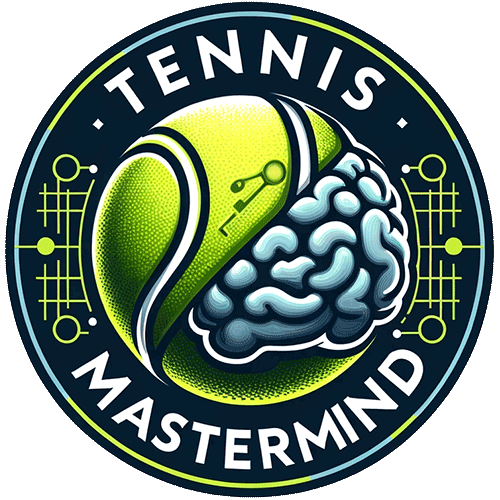Welcome to our guide on mastering tennis etiquette and sportsmanship! Beyond the rules and techniques of the game, tennis etiquette plays a crucial role in shaping the overall experience on the court. It’s about creating an atmosphere of respect, fair play, and enjoyment for all players involved. In this section, we will explore the importance of tennis etiquette and provide you with practical guidelines to ensure proper conduct during matches.
Key Takeaways:
- Tennis etiquette establishes a culture of respect, sportsmanship, and enjoyment on the court.
- Adhering to tennis etiquette rules and guidelines promotes fair play and good sportsmanship.
- Respecting the court and equipment is an essential aspect of tennis etiquette.
- Punctuality and proper warm-up demonstrate respect for opponents and the game.
- Maintaining good on-court behavior and communication fosters a respectful and focused environment.
Respecting the Court and Equipment
Respecting the court and equipment is an integral part of tennis etiquette. By treating the court and equipment with care, we not only maintain the integrity of the game but also create a pleasant playing environment for ourselves and others.
In order to respect the court, avoid actions that may cause damage to the surface. This includes refraining from dragging tennis bags or shoes across the court, which can leave unsightly marks. Instead, carry your equipment and be mindful of where you place any objects on the court.
Furthermore, it is essential to pick up any trash or balls at the end of a match. Leaving behind litter not only creates an untidy appearance but also poses a safety hazard for players. So, let’s take a moment to ensure that the court remains clean and hazard-free for everyone’s enjoyment.
Additionally, we must demonstrate respect for the equipment by handling it responsibly. Avoid slamming or throwing your racket in frustration, as it can lead to damage and disturbances on the court. Treat your racket with care, recognizing that it is an essential tool in the game of tennis.
Maintaining Tennis Equipment
Proper care of your tennis equipment is crucial to ensure its longevity and optimal performance. Here are some tips:
- Clean your racket after each use by wiping it down with a damp cloth to remove any dirt or sweat.
- Check the strings regularly for signs of wear and consider restringing them when necessary.
- Store your racket in a protective cover or a designated racket bag to prevent damage.
- Inspect your tennis shoes for wear and tear, and replace them if needed to maintain proper traction on the court.
Remember, by respecting the court and equipment, we uphold the values of the sport and contribute to a positive tennis experience for both ourselves and others. Let’s play with respect and care, enhancing the game of tennis for everyone involved.
Arrival and Warm-Up Etiquette
In the world of tennis, punctuality is not only a matter of personal discipline but also a testament to respect for the game and your opponent. Arriving on time for matches or practice sessions is essential to ensure a smooth flow of play and maintain fairness on the court.
When you arrive promptly, you create an atmosphere of professionalism and consideration, demonstrating your commitment to the sport. Being punctual allows for adequate warm-up time, ensuring that both you and your opponent can properly prepare physically and mentally for the match ahead.

Proper Warm-Up
Before stepping onto the court, taking the time to warm up correctly is not only beneficial for your own performance but also shows respect for your opponent’s need for preparation. A proper warm-up routine helps prevent injuries, improves focus, and enhances your overall tennis experience.
Remember to stretch your muscles gently and progressively to promote flexibility and reduce the risk of strains. Incorporate dynamic movements, such as jogging or high knees, to elevate your heart rate and increase body temperature. Gradually transition into tennis-specific exercises, emphasizing mobility, agility, and stroke mechanics.
Your warm-up routine should be tailored to your individual needs and preferences. By dedicating adequate time to prepare physically, you position yourself for optimal performance, allowing both you and your opponent to engage in an exciting and challenging match.
Sharing the Court and Starting on Time
Respect for your opponent’s time extends beyond the warm-up. When sharing the court for warm-up, be mindful of the space and avoid monopolizing it for an extended period. Being considerate and cooperative fosters a positive environment and promotes fair play.
Furthermore, starting the introduction on time is a vital aspect of arrival and warm-up etiquette. Ensuring that the match begins promptly not only demonstrates your punctuality but also shows respect for both players’ schedules and commitments.
By adhering to arrival and warm-up etiquette, you set the tone for a match filled with respect, fair play, and sportsmanship. Your commitment to punctuality and preparedness contributes to an enjoyable tennis experience for all.
| Arrival and Warm-Up Etiquette |
|---|
| Punctuality in tennis |
| Arriving on time |
| Proper warm-up |
| Respecting opponent’s time |
On-Court Behavior and Communication
Maintaining good behavior on the court is essential for showing respect to opponents, spectators, and the game itself. It is important to uphold the principles of fair play and good sportsmanship, as they contribute to a positive and enjoyable tennis experience for everyone involved.
Displaying Good Sportsmanship
Good sportsmanship on the court goes beyond following the rules. It involves treating opponents with respect and refraining from engaging in unsportsmanlike conduct. This includes avoiding displays of anger, such as racket throwing or verbal outbursts, which can create a negative atmosphere and detract from the enjoyment of the game.
“Respecting your opponent means treating them with dignity, regardless of the outcome of the match.”
Clear Communication for Line Calls
Effective communication is crucial for fair and accurate line calls. Players should communicate clearly and honestly when making line calls, ensuring that they are both heard and understood by their opponents. It is important to avoid any intentional attempts to mislead or deceive, as this undermines the integrity of the game.
Keeping Noise Levels in Check
Noise levels on the court should be kept to a minimum to maintain a respectful and focused atmosphere. Excessive noise, such as loud grunting or shouting, can be distracting and disruptive to both players and spectators. By being aware of and controlling noise levels, players contribute to a more enjoyable and professional tennis environment.
“Maintaining a serene and focused atmosphere allows players to fully immerse themselves in the game and showcase their skills.”
Conclusion
Tennis etiquette and sportsmanship play a crucial role in enhancing the overall tennis experience. By adhering to the unwritten rules and customs of the game, players can foster an environment of fair play, respect, and camaraderie on the court.
Practicing good sportsmanship not only benefits the entire tennis community but also reflects positively on the individual player. When we embrace tennis etiquette, we create a positive and enjoyable experience for ourselves and those around us.
By displaying respect for our opponents, umpires, and the game itself, we contribute to a more harmonious and welcoming tennis culture. When we uphold the values of fair play and integrity, we inspire others to do the same, creating a ripple effect of positive behavior.
So let’s embrace tennis etiquette and sportsmanship as an integral part of our tennis journey. Together, we can cultivate a thriving tennis community where everyone can have a fulfilling and positive experience on the court.




